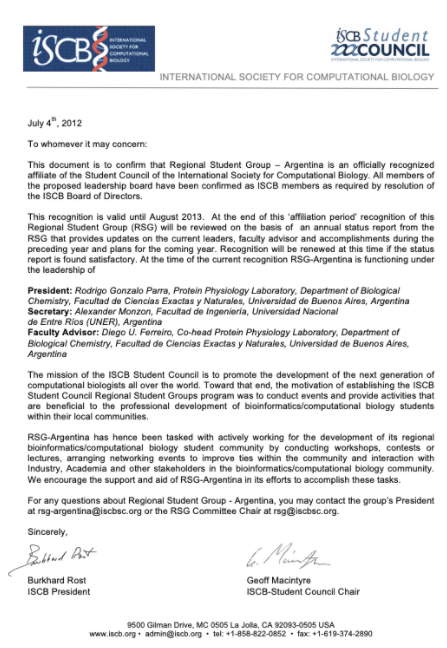
[Thread 🧵] It is until now that I have time to tell about the great Birds of a Feather session we organised last Tuesday from the @Bioinfo4women project and that I chaired during #ECCB2022 @ECCBinfo! Nice discussion happened afterwards! (+) 
https://twitter.com/GonzaParra_/status/1572030941291319298

We started our discussion with @mjrementeria explaining why it is important to increase diversity within research groups and gave recommendations to do it at the institutional level (+)
https://twitter.com/albajene/status/1572179244729659393?s=20&t=dnkMC74yMI_3lXRdxRvlyg
We followed by having me explaining what happens if we don't make our biases conscious. I showcased how despite our best intentions.. we ended up having only male keynotes at the 1st LA-SCS (@IscbLascs) chaired by me in 2014. Since then gender parity is a must in our events (+)
Discussion was followed by @Monica_CabreraP explaining their experiences when organizing @iscb_escs 2022 co-chaired by her and @ina_deutschmann (+)
https://twitter.com/albajene/status/1572181347988275201?s=20&t=dnkMC74yMI_3lXRdxRvlyg
Introduction was finished by @Davide__Cirillo who introduced the topics from their book "Sex and gender biases no technology and artificial intelligence (+)
https://twitter.com/albajene/status/1572184549668556800?s=20&t=dnkMC74yMI_3lXRdxRvlyg
Discussion was then opened to the public. When this happened I was really surprised to realised that the auditorium was quite full with 108 people (69 women + 39 men) Thanks @EvaAlloza for counting (repeated times!). Following I comment on some highlights (+)
1st comment was about a woman who expressed "I sometimes am afraid that women get positions in committees or as keynotes just to fill in a female position and not because of their knowledge or quality". Multiple answers summarised more or less the following: (+)
Even if quota is the only reason, including diversity in the committees will sooner or later expand diversity in downstream sectors. Women bring up other types of personalities to the table they tend to be more caring and more listening. (+)
Somebody expressed that women being more caring and more listening responds to stereotypes. Other people added that stereotypes are true, because we were nurtured in a sex/gender stereotyped world and including people from different stereotypes would be good to balance (+)
Other people expressed that including people from minorities into committees improves diversity and generate role models for younger people and that is important per se.. if it is for a quota or not, it is a minor issue in the overall picture and we should not care about it (+)
Here I comment on what for me was the most emotional point from the session. A person raised their hand & expressed that our view was all male/female and did not contemplate non-binarism. While saying this, the person was trembling, blushed and with tears on their eyes (+)
This person later on commented to me that they basically came out as a non-binary person to their colleagues during the session. As the chair of the session I was really moved. As a queer guy who is in touch with non-binary people outside from work, I felt embarrassed (+)
That's the reason why representativity is needed. As scientists we are overwhelmed by responsibilities/deadlines. When under pressure, our biases allow us to be efficient. During the preparation of the session, we just drove in automatic and non-binarism was invisble to us (+)
I guess that from now and on, we will not forget about it or at least we will try. We have also approached this non-binary person to collaborate with us to improve and to make non-binary people visible! They were happy to participate from now and on (+).
Finally, we expected just a few people to attend but at the end the session was a whole success as it was held during lunch time and coffee break. This shows gender, sexuality, ethnicity and geographic diversity among other dimensions are so important in science (+)
A lot of people came after the session to thank us for the organisation of the session and said that they expected more activities like this are in the middle of the programme in the future. Maybe for @ISMBinfo/@ECCBinfo 2023 in Lyon? (+)
A #LGTBQI+ session would be really interesting although finding panelists for it is difficult as it requires people to be out of the closet/comfortable showing that side of their personal lives in a big international, work-related environment @TheSTEMvillage could help us (+)
Another session where to discuss the importance of including the socioeconomic background of people when working in science would be interesting as this background imprints a lot of features in our personalities (+)
To end, thanks to the @Bioinfo4women for organising; @EvaAlloza for articulating the needed resources / permissions; @mjrementeria, @Monica_CabreraP and @Davide__Cirillo for participating in the opening discussion! And all people who attended and participated in the discussion!
@threadreaderapp please unroll
• • •
Missing some Tweet in this thread? You can try to
force a refresh







